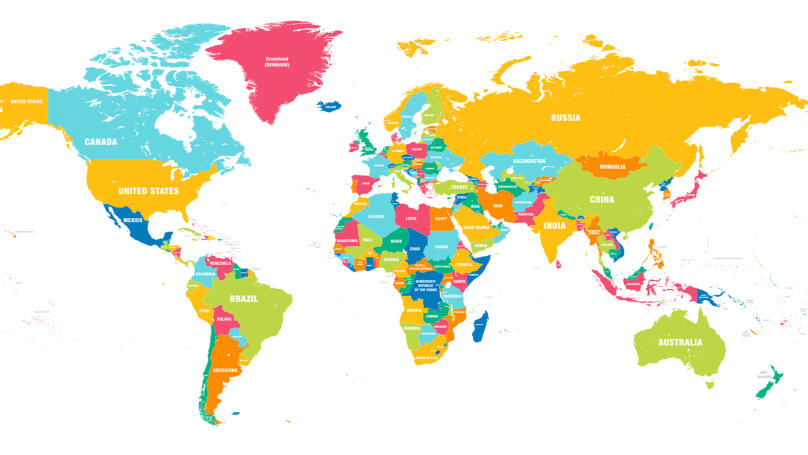A quick guide on how to apply to a foreign university
Studying abroad is a dream for many. But not everyone knows how easy it is to achieve! You just have to prepare properly and analyse all the nuances. Are you ready to get a better education and change your future?

If you're just considering applying abroad and don't know where to start, start with our guide to applying.
Decide on your profession

You have to do it anyway, regardless of whether or not you decide to go abroad. When choosing a particular professional niche, rely on the subjects and disciplines that you enjoy studying. Imagine that every school day, for example, you will devote 2-3 hours just to the history of art. Are you ready to do this? Write down your favourite subjects on a sheet of paper and put together a group of appropriate majors based on these.
You can rely not only on your subjects but also on your hobbies. Remember the adage that the best job is the one you love. Moreover, you can develop some hobbies into a profession.
Choose a region and a country

Many people idealise the country they dream of living in based on films, TV series, and their ideas. However, you'd better choose a country based on a rational decision. Evaluate your choice from all angles. Ask yourself:
- Am I happy with the climate of the country? Will I be able to live there for a few years?
- Does the culture and mentality of the country suit me? Am I sure I will be able to adapt?
- Are there career prospects in this country? Does it offer citizenship, a work visa, or jobs for students educated there? It is easiest, for example, to find a job after graduation in countries such as Norway, Denmark, Germany, Hong Kong, and the UK.
- What are the salary expectations in this country, and what is the demand for my chosen speciality? In Switzerland, for example, the tourism industry is in particular demand, while in the UK, it is lawyers.
- What is the cost of living in that country, including food, utilities and accommodation?
- Do I know the language well enough? If I don't, am I willing to learn it in a short time?
Analyse each of the countries you are considering for your education with these questions, and then compare them. For instance, it may be more practical to choose a university in Spain, if in addition to English you also know Spanish because flying to Spain is much closer than, say, to North America.
Explore the available universities and study programmes

Each university offers its unique programme in the field of study you choose. Even programmes with the same name within one institution may still differ. For example, in the United States, you can choose a major and a secondary speciality to study simultaneously. Some programmes may emphasise scientific research, whilst others may have an emphasis on hands-on activities or self-study.
The following points are worth considering when choosing a university and a programme:
- The teaching staff of the department - is an important indicator of the university's prestige. Do they include well-known researchers, academics, and renowned and eminent professors? What academic credentials do they attach to the "About the faculty" section? Read student reviews of the quality of teaching and their life on campus. Better yet, get in touch with some of them personally!
- The university's credibility in your professional field. Just because a university ranks first in an international ranking doesn't necessarily mean anything. Often the first places are given for participation in competitions and rich history. The main thing is that the university should be considered prestigious by those professionals among whose ranks you want to join. The university does not necessarily have to be as famous as Harvard. What really matters is the number of well-known professionals in their field.
- Tuition fees, grants and scholarships. Price is a deciding factor for many people when choosing a programme, so the first place to look is the individual institution's website in the Financial Aid section. See if you are eligible for any grants or scholarships. Prestigious institutions such as the Ivy League institutions in the United States have the most funding opportunities. If you plan to stay in the country after you graduate, this is a great way to continue your education at a discount or even get free tuition.
Collect your documents

Today you no longer need to go to university in the flesh to make an application because you can do it all online. The key, though, is to ensure you have all the necessary documents. Generally, the application packet is 80% the same for all universities. You will need:
- your student CV;
- your application form;
- A transcript of your grades;
- GPA (grade point average);
- your language exam certificate;
- A motivation (covering) letter.
The latter is a creative essay where you must present yourself competently as a candidate to the admissions committee. It is even more important than your grades. Talk about your values, goals, ambitions and personality traits. The best way to do this is to tell a short story from your life that highlights your strengths and virtues. However, structure and vocabulary are also very important in a motivational letter.
Lectera's course "The World's Best Universities. How to apply and realise your dreams" will guide you through each stage of your preparation for admission and help you along this challenging path. You'll learn all you need to know: how to choose the best university, collect the necessary documents quickly, and all about the language exam. Lectera experts will tell you where you can find funding, how to choose accommodation and, of course, how to adapt to a new country after your move quickly. Lectera will help you realise your dream of studying at one of the best universities in the world, so what are you waiting for? Get started today!
Share this with your friends via:
Latest News

A significant stage in the development of the alternative education system has begun in West Northamptonshire in the UK: the County Council is actively calling on parents, guardians, and trustees to participate in shaping the future of this key area.

Outwoods Primary School in Atherstone, Warwickshire, having experienced deep sadness after the loss of their famous cat, Silla, has found solace in a new pet – a Maine Coon named Aloysius O’Hara.

In modern universities, artificial intelligence, and in particular ChatGPT, is rapidly transforming from a controversial tool into a full-fledged student assistant.

An innovative educational project is gaining momentum in UK primary schools, aiming to change attitudes towards video games.

The Massachusetts Institute of Technology (MIT) presents MIT Learn – a revolutionary online platform that opens a “new front door” to access university knowledge and resources.












 Test. Check Your Social Media Dependency Level!
Test. Check Your Social Media Dependency Level!
 Test: What Business is Right For You?
Test: What Business is Right For You?
 “I’m Here for the Long Haul”: When Loyalty to a Company Becomes Toxic
“I’m Here for the Long Haul”: When Loyalty to a Company Becomes Toxic
 Test: How Prone Are You to Abusive Behavior as a Manager?
Test: How Prone Are You to Abusive Behavior as a Manager?
 Test. What superpower would you possess if you were a superhero?
Test. What superpower would you possess if you were a superhero?
 Test. What Should You Let Go of Before Winter Ends?
Test. What Should You Let Go of Before Winter Ends?
